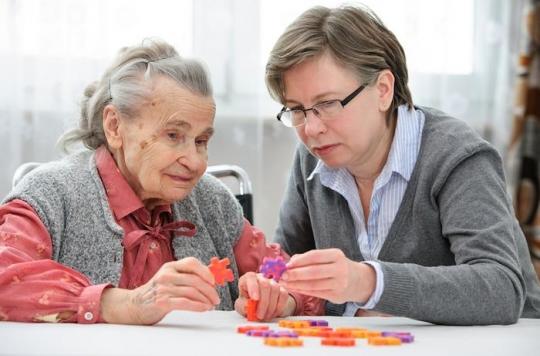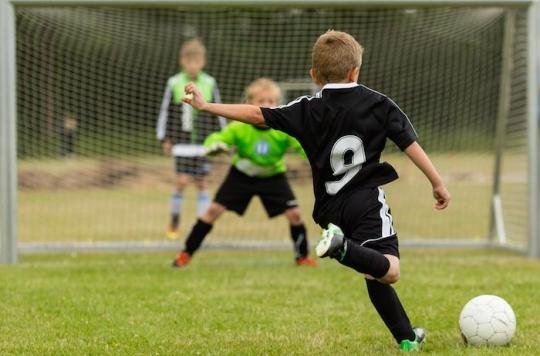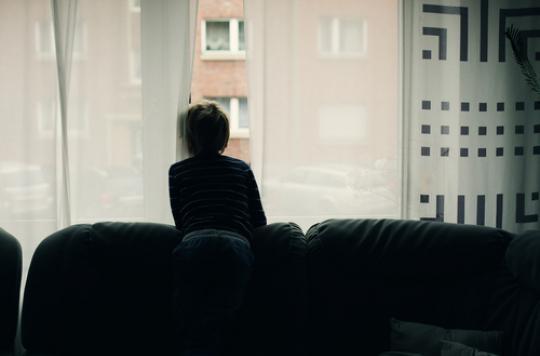After suspicion of sexual abuse of a 15-month-old baby, a nursery in Clichy (92) closed. Abuse of vulnerable people must be reported.

The news is cold in the back! The Nanterre minors’ brigade (92) has just opened a preliminary investigation into possible sexual abuse in a crèche located in the Roguet Foundation, in Clichy-la-Garenne (Hauts-de-Seine). At the origin of this possible news item, the report on Tuesday of a nursery nurse who reported a health problem to the medical service concerning a 15-month-old child. From then on, the family immediately had the little girl hospitalized at the Necker-Enfants Malades Hospital in Paris. And following the first examinations, the doctors alerted the Nanterre minors’ brigade, which is now leading the investigation.
In the meantime, the director of the Foundation has decided to close the nursery until further notice. A psychological support unit has also been set up. So, even if the public prosecutor of Nanterre calls for “the greatest caution” on the treatment of this information, “we are absolutely not sure of anything”, it seems useful to recall that the report is an obligation when one witnesses an act of mistreatment, and even when a person suspects such acts, without being certain of it. It will then be up to justice to establish the facts.
The obligation to inform the judicial or administrative authorities
In general, the law requires everyone not to be silent and to act when he is aware of the situation of a child in danger or at risk of being so. Thus, article 434-1 of the penal code obliges anyone, having knowledge of a crime whose effects it is still possible to prevent or limit or whose perpetrators are likely to commit new crimes that could be prevented, inform the judicial or administrative authorities.
If the minor is under 15 years of age, failure to comply with this obligation may be punished by 3 years’ imprisonment and € 45,000 fine.
In addition, the penal code punishes both the failure to prevent an offense (article 223-6 paragraph 1) as well as the failure to provide assistance (article 223-6 paragraph 2).
Finally, if these provisions apply to all citizens, they apply with all the more force to officials of the National Education who, in application of Article 40 of the Code of Criminal Procedure, are required to give notice without delay to the public prosecutor of any crime or misdemeanor of which they are aware in the exercise of their functions and to transmit to this magistrate all the information, reports and acts relating thereto.
Who to report to
The transmission of this type of information must be made to the General Council (child welfare service, Childhood in Danger Unit) in situations deemed “worrying” of children at risk or suspicion of mistreatment. (without necessarily the facts being proven). Then, the Childhood in Danger Unit of the General Council is responsible for collecting, processing and evaluating this information. After evaluation, the Childhood in Danger Unit of the General Council can refer the matter to the judicial authority, if necessary.
In addition, the report can be made directly to the Public Prosecutor for proven emergency situations requiring immediate protection of the minor: proven mistreatment (with if possible a finding of beatings), sexual violence or suspicion of sexual violence.
Finally, any National Education staff responsible for transmitting worrying information (s) to the President of the General Council or a report to the Prosecutor, is also required to inform their superiors in the shortest time possible.
How to report
On the one hand, it is possible to report acts of mistreatment in writing. With a simple letter containing the contact details of the person reporting, your situation (or profession), your department if applicable, your contact details. But also the contact details of the minor concerned (identity of the child, age or date of birth, name (s) of parents, address (es) of parents). Finally, it is also necessary to make a detailed description of the facts (facts observed or reported without value judgment).
Another way to report, by phone (in all emergencies). But a report by telephone when it comes from a childcare professional must always be confirmed in writing. The national toll-free telephone is 119, a free national helpline which is responsible for collecting reports of abused children. It operates 24 hours a day and aims to both collect reports and listen to people and minors in difficulty to provide them with help and advice. This call can remain anonymous and will not appear on the phone bill.
Source: The Child Protection Association (AVPE).
.















